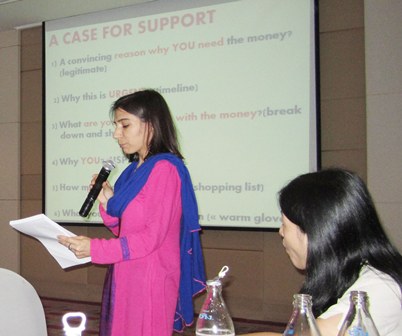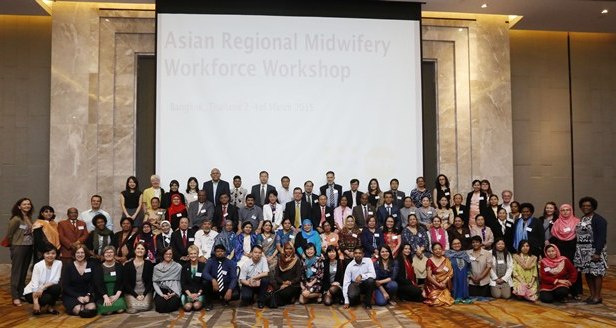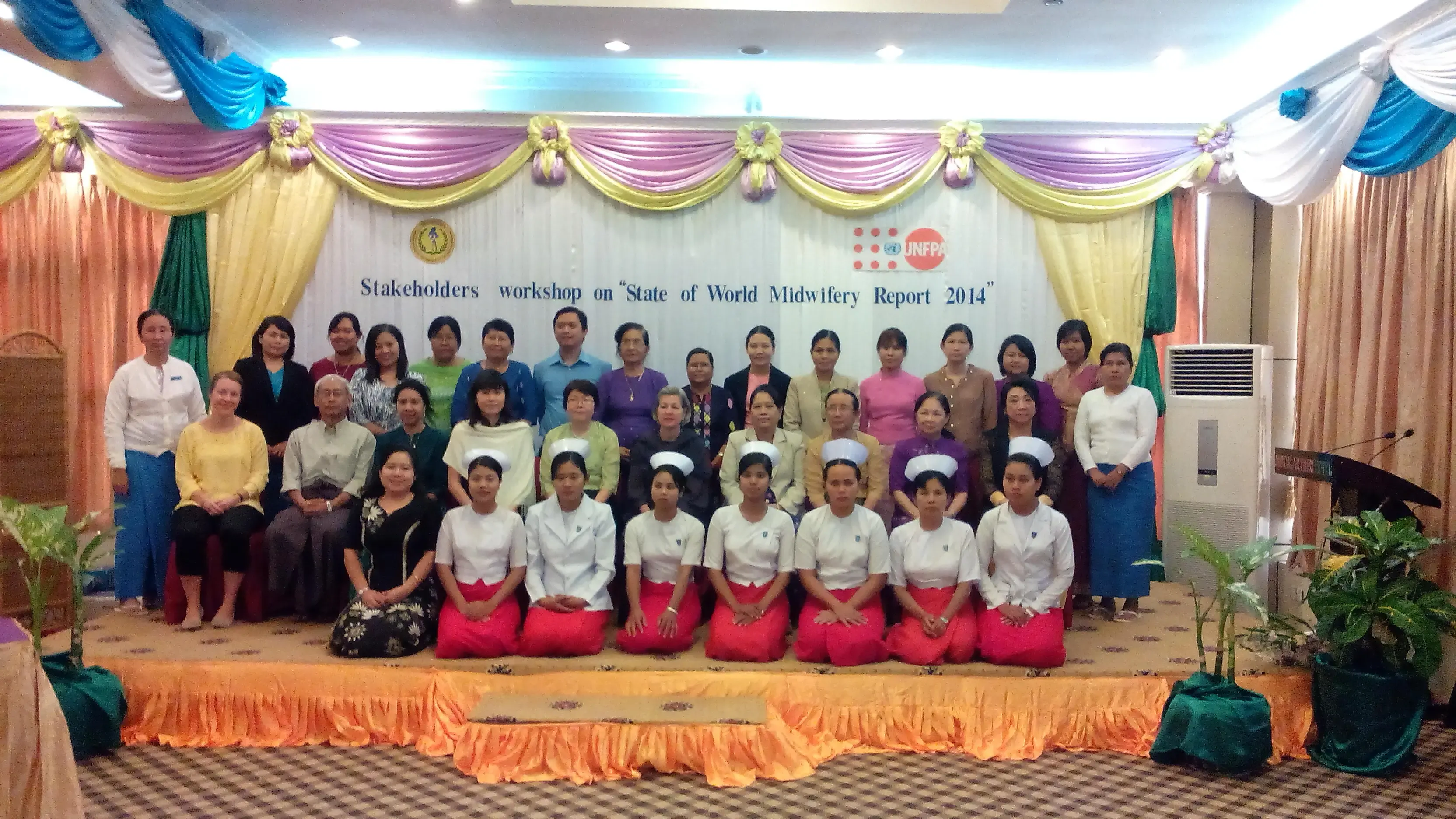
In one of the sessions, Bangladesh shared its Reproductive Maternal and Newborn Health workforce assessment. Bangladesh, with 72% of its population residing in rural area, shares many similarities with Myanmar in terms of regional disparity in maternal mortality rates, skilled birth attendance rates, inequitable distribution of health staff and the limited use of life saving interventions. Bangladesh’s experience is very useful for countries like Myanmar which are planning to undertake midwifery workforce assessment to improve quality of midwives. The workshop also represented a milestone for midwives in Asia as significant steps were taken towards setting up a Midwives Alliance for Asia. Consensus was gained on the constitution for the Alliance, and a strategy and work-plan were developed.
The UNFPA Myanmar Country Office supported representatives from the Obstetrics and Gynaecology Society, the Myanmar Nurse and Midwife Association, the Myanmar Nurse and Midwife Council, the Department of Medical Science, the Department of Health, as well as a national programme officer to attend the conference.






